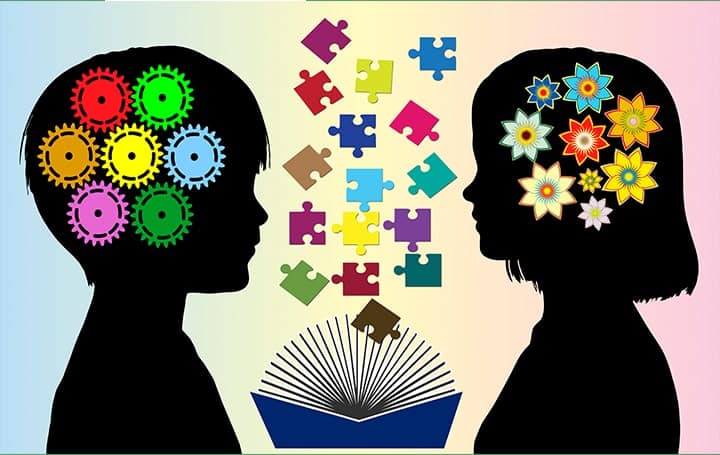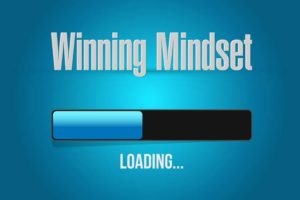
Growth Mindset for Teens
Growing your money and knowing how to invest don’t just happen. They take time, effort, knowledge, and a willingness to learn.
Stanford professor Carol Dweck coined the terms growth mindset and fixed mindset in her book Mindset. Her theory states that a growth mindset is a belief that you can improve skills and increase intelligence through effort, planning, and coaching.
A fixed mindset is a belief that you are born with abilities and skills or gifts that cannot be gained any other way. Creating a growth mindset for teens is a quality that can be life-changing, and a very important skill to develop.
What Does Growth Mindset Mean?
Individuals with a growth mindset have a core belief that they can learn the skill of learning. They see effort as part of the journey and understand that feedback is a tool for completing their goals. They are risk-takers and seek challenges, even if failure is possible, because making mistakes is simply part of the path to greater growth.
Alternatively, individuals with a fixed mindset avoid challenges or attempt something beyond their current skill level because they fear failure and embarrassment. They believe there is a limit to which anyone can achieve success based on their genetics.
Therefore, they choose paths that require little or no effort to achieve success. As a result, they shy away from challenges, so they can avoid failure at all costs.
Growth Mindset for Students
Professor Dweck designed a program that motivated students to believe they have the power to increase their brain’s ability to learn and therefore grow their level of intelligence.
For example, a student who’d struggled to keep up and lashed out in frustration was inspired to learn new study strategies, seek guidance from his teachers, and ultimately improve his grades.
Students who believe they can get smarter or perform better understand that it’s the effort that leads to a higher level of achievement. They can apply the principles of a growth mindset not only to their academic pursuits but to sports, the arts, and interpersonal relationships.
Benefits of Having a Growth Mindset
Truthfully, most people live within a spectrum of growth and fixed mindsets. In some aspects of our life, we may already have a growth mindset, and for others, our core beliefs leave us with a fixed mindset that we may not want or be willing to change.
Though we all have insecurities that may deter us from exploring a growth mindset, we should not let that keep us from gaining our full potential.
The teenage years are a time of massive potential growth. If you don’t use this time to build on your current level of talent and intelligence, you could end up losing the opportunity. Instead, create a strategy to focus your efforts on continued learning and improving.
One benefit of seeking a growth mindset is a recalibrated sense of self-worth, one that doesn’t rely on outside views but a core belief that if you continue to try, you can succeed.
Teens who develop a growth mindset are often more adventurous and don’t let the fear of failure hold them back. They are more open to feedback from others and don’t take constructive criticism personally. They are more collaborative, innovative and are more confident in trying something new.
With a concentrated effort to establish a growth mindset, teens can achieve higher grades and build better relationships with their parents and peers.
What is a False Growth Mindset?
Having a growth mindset is more than just being open-minded or having a positive outlook. Achievement is often equal to the amount of effort the individual gives to get there.
Individuals with a false growth mindset believe they have a growth mindset when they do not. They think that you only have to look smart to be smart. Since a growth mindset is something good to have, they believe they must innately have it, ignoring the effort it takes to achieve it.
Since they actually have a fixed mindset, they hide behind past achievements that aren’t connected to a growth mindset. When challenged or shown up by others, they feel jealousy and envy.
They are likelier to cheat to get what they want and justify it as hustling to succeed. They do not focus their efforts on growth but on the appearance of success.
How do you Get a Growth Mindset?
Start by reviewing your current thoughts and beliefs. When you find yourself in a situation where you think, I can’t, consider why you feel that. Is it born out of fear or shame, or is it simply because you have never made an effort? Instead, think I can’t, YET.
Consider what it is you want to improve. Do you want to achieve higher grades? Improve a skill or learn something new? Then create a SMART (strategic, measurable, achievable, relevant, time-bound) goal to achieve it.
Seek constructive feedback throughout the process. Ask your parents, teacher, or coach to review your plan and assist you in keeping you on track. Their guidance and experience are beneficial to building a growth mindset.
How to Train Your Brain to Think Differently

Though the brain is not a muscle, it can act like one, meaning there are ways to change your brain to function better. New abilities can be achieved through practice, which can physically grow your brain.
For example, while studying the brain activity of London taxi drivers, researchers learned that memorizing the many routes through the city taxi drivers could increase the portion of the brain required to improve their navigation skills.
Though not all parts of your brain can grow in that way, studies have shown that you can increase the speed at which your brain processes information.
Therefore, when you focus intensely on a single subject for a specific period of time, you can rewire your brain to perform the task more easily and with more speed and accuracy.
How do Students with a Growth Mindset See their Mistakes?
Students with a growth mindset don’t let failure stop them. They consider mistakes and missteps learning experiences of how not to do something. As Samuel Beckett said, “Ever tried. Ever failed. No matter. Try Again. Fail Again. Fail Better.”
What Mr. Beckett was trying to tell us is that failure is an opportunity to do better. Students with a growth mindset respond to failure in a more positive way. They take a focussed approach to review the data and construct a better path to completion. Simply, if you stick to it, you’ll improve.
Everyone makes mistakes. It’s how we react to making those mistakes that speak to whether we have a growth mindset or a fixed mindset. Do we run away or give up?
Or do we try again, reviewing our errors and making a plan to expand our knowledge, increase skills, or take more time to get training so that we have a better chance to succeed?
Quitting before you have given yourself the chance to do better robs you of the opportunity to accomplish, succeed, and build the perseverance to attain what you desire. Sinking into feelings of shame and humiliation can cause you to lash out and push you farther away from your goals. Instead, give yourself some grace to fail.
If your plans are giving you added pressure, consider reframing them so they feel doable but still challenging. Having a growth mindset means knowing that learning will take time and that time is worth spending.
Growth Mindset Examples vs Fixed Mindset Examples
Let’s look at how two students, one with a fixed mindset and one with a growth mindset, handle similar situations. These growth and fixed mindset examples demonstrate the mentality it takes to become better at whatever it is you choose to do.
Student A has a fixed mindset and thinks you were born with a skill or you weren’t. He believes without those innate gifts, you will not be able to improve that skill to a higher level. That is why he doesn’t put a lot of effort into improving his grade in math.
He sees others who seem to achieve better grades with what he perceives as minimal effort and decides that he is unable to do better since it is not a skill that comes easily to him.
Student B has a growth mindset and feels that she can do better at any subject if she applies herself, takes the time to study, and makes an effort to improve. Though her math skills are not at the level of other classmates, she doesn’t see their success as a reason to quit trying.
She considers learning a fun activity and finds challenges exciting. She creates a plan to study math more frequently and asks her teacher for feedback on areas she needs to improve.
Student A takes feedback personally and gets upset when he receives a poor grade. He does not feel in control of his abilities and doesn’t push himself to study harder. He avoids being around others who are succeeding at what he is not, as they make him feel bad. He sees their success as his failure.
Student B realizes that the effort is worth the risk of failure. She does not take constructive feedback as a personal attack. Instead, she sees it as an opportunity to improve and uses it to do better.
She seeks others who are also challenging themselves as she feels it will inspire her to do better. Their success does not threaten her. She believes in her own capacity to learn and grow.
Growth and fixed mindset examples are all around us. Talk to different people about their goals and you will quickly distinguish whose includes learning. Having the right mindset is often the difference in one’s success.
Where Do We See Growth Mindset in Use?
More and more high-profile companies, sports teams, and schools are seeing a growth mindset as a solid foundation for learning and are implementing it into their culture.
So, it stands to reason, learning new ways to adapt to a growth mindset culture while young can put an individual ahead of others stuck in their fixed mindset. Creating a growth mindset for teens would only set everybody up for success.
By: Robert Puharich | November 21, 2021 |
What are some of your goals?






Pingback: 15 Student Life Hacks You Need to Know - MTS Blog
Pingback: 25 Small Business Ideas for Teens and Students - Teen Learner